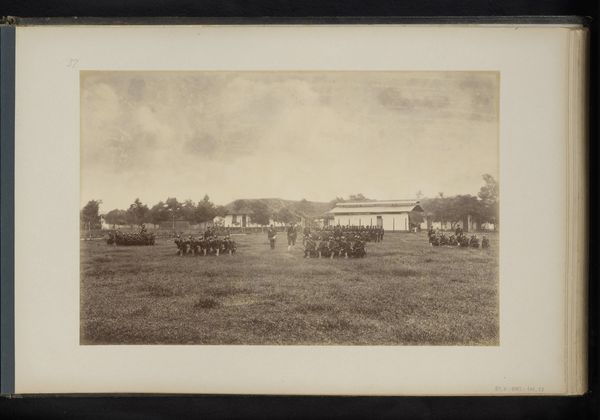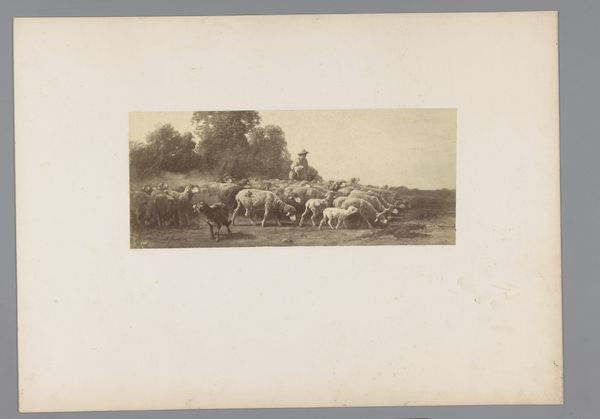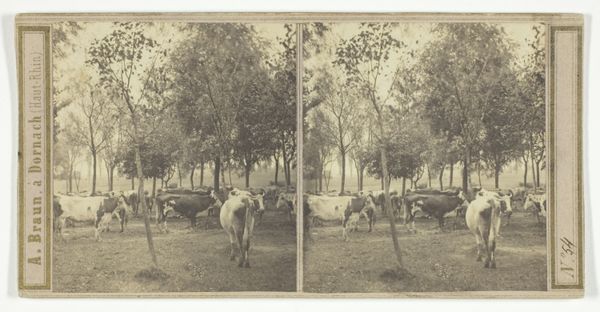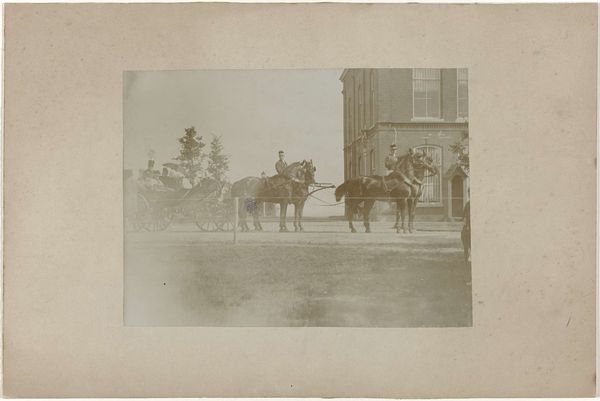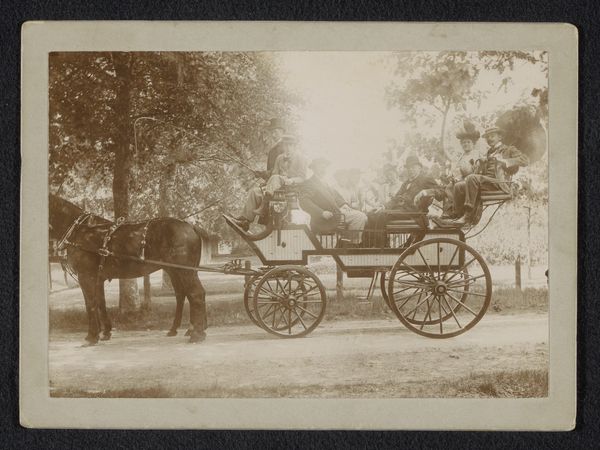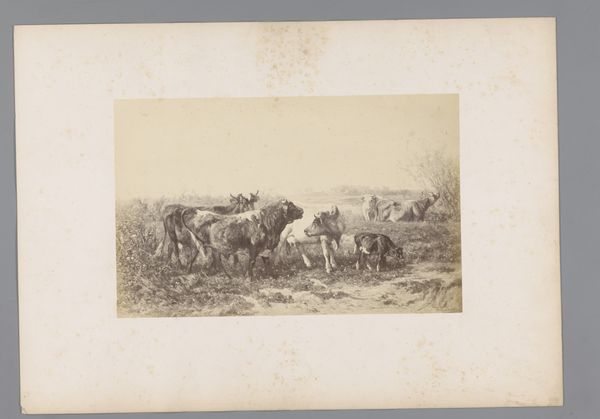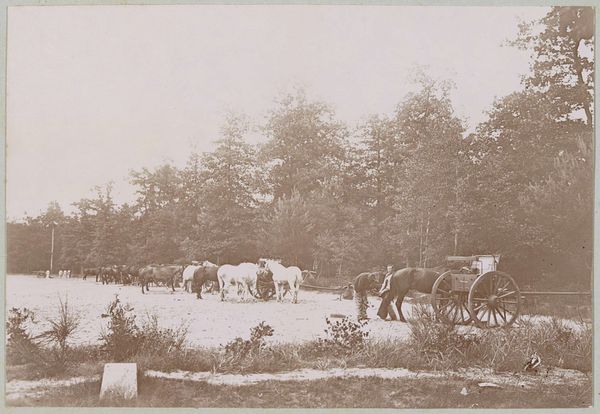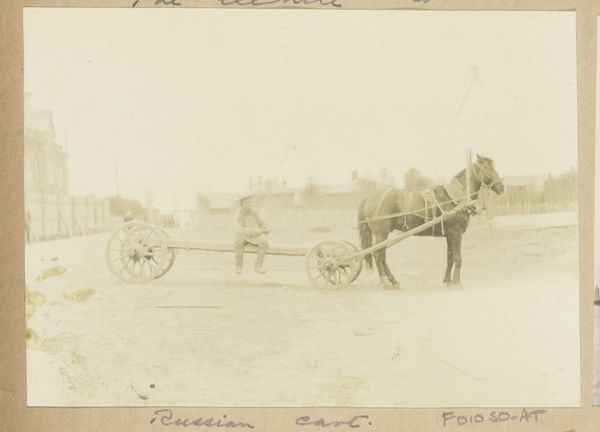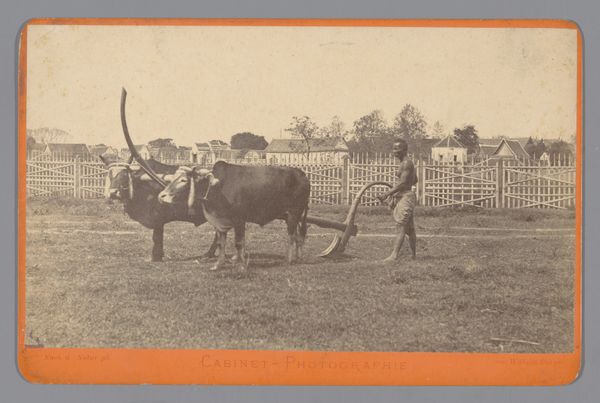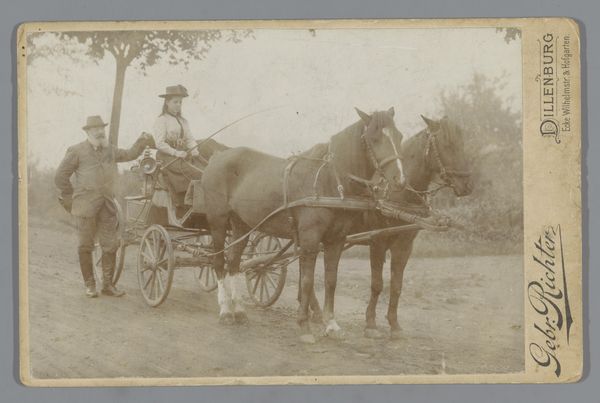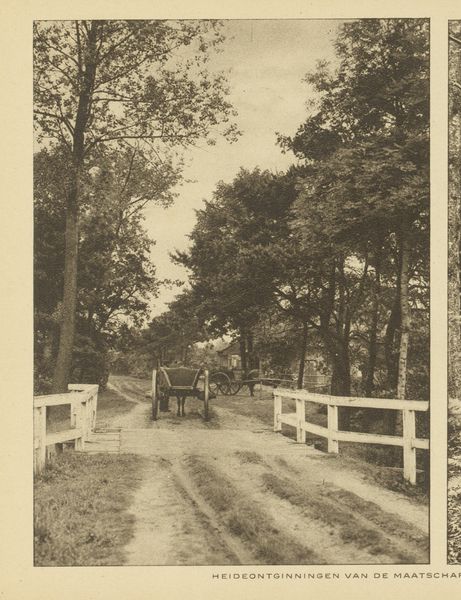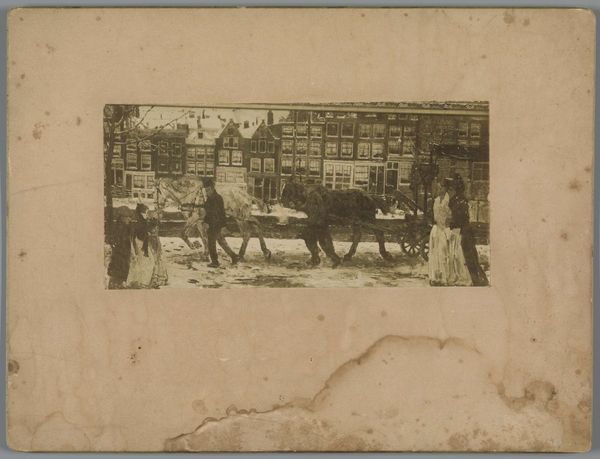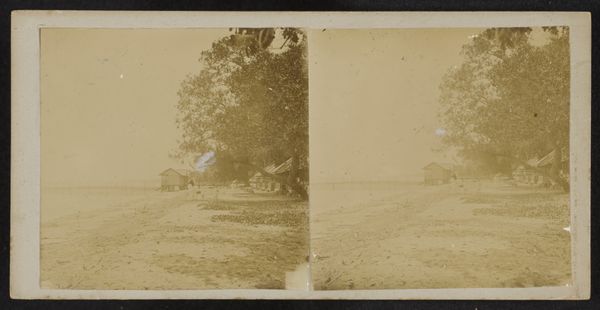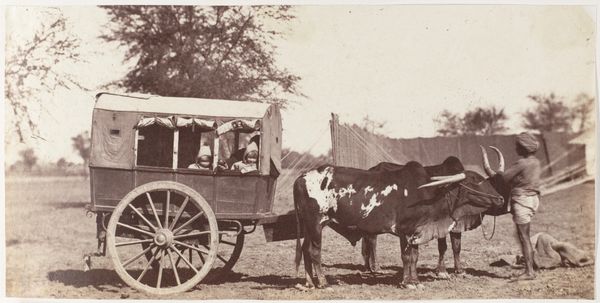
photography, albumen-print
#
aged paper
#
still-life-photography
#
toned paper
#
landscape
#
photography
#
albumen-print
#
realism
Dimensions: height 189 mm, width 249 mm, height 242 mm, width 315 mm
Copyright: Rijks Museum: Open Domain
Editor: So, this is "Ossenkar in landschap" – "Ox cart in landscape" – a photograph taken in 1887 by A. Foncelle, using the albumen print process. The sepia tones give it such a nostalgic feel, and the composition, with the oxen pulling the cart, seems to evoke a simpler, more agrarian past. What visual cues jump out at you? Curator: Well, let's consider what the ox and the cart would have signified in 1887. The ox, often depicted in art throughout history, embodies patience, strength, and unwavering labor. It's a symbol of sustenance, representing the agricultural backbone of society. Even today, we recognize those qualities. How do you think that symbolism affects our viewing experience? Editor: I suppose it makes me think of hard work, and maybe even a kind of humble acceptance of one’s place in the world. There’s nothing flashy about it, just a quiet dignity. Curator: Precisely. And the landscape itself becomes a character. Note how the trees, even in soft focus, seem to offer a kind of silent witness. This landscape, combined with the figures, reflects our complex relationship with nature—simultaneously a source of sustenance and a representation of something larger. Does this then change how you perceive the piece? Editor: Definitely. It's more than just a pretty picture; it's like a window into a cultural memory, reminding us of where we came from and what we once valued. Curator: Exactly! It underscores how seemingly simple images can resonate with collective experiences, preserving and transmitting cultural values across time. I’ve learned a lot as well; considering symbols more deliberately certainly deepened the experience. Editor: I totally agree. Now I see this photograph less as a snapshot of the past, and more as a mirror reflecting our ongoing relationship with history, labor, and the land.
Comments
No comments
Be the first to comment and join the conversation on the ultimate creative platform.
